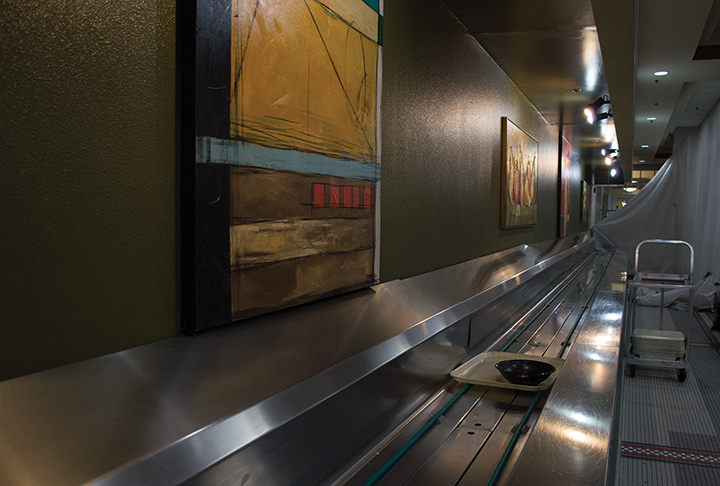The University of Maryland’s Office of Sustainability announced the second round of 2015-16 sustainability fund grants on April 14, which will invest a total of $88,553 into various projects to make the campus more eco-friendly, said Andrew Muir, the sustainability office’s communications coordinator.
The approved proposals for the second round consist of five campus projects: transforming the North Campus Dining Hall to better suit the anytime-dining plan, creating a stormwater management system on Wellness Way near the public health school, improving indoor air-quality with the implementation of bio-walls, testing environmentally friendly landscape treatments and adding 15 solar-paneled umbrellas to the Outdoor Aquatic Center that can power USB chargers for electronic devices.
The first round of projects cost about $194,849 in total, said Muir. Each grant itself is generated by student fees, and anyone on the campus can apply for a grant. The projects are first approved by the student advisory subcommittee and then reviewed by the 16-member sustainability council, said Allison Lilly, Dining Services’ assistant director.
The largest-funded project of the group is the renovation of the North Campus Dining Hall, which received $50,000, according to sustainability.umd.edu. Dining Services is adding $100,000 to help fund the project, Lilly said. The goal is to replace the current conveyor belt, which has been in the dining hall since the late 1990s, said Lilly, with a new dish conveyor belt — also called an accumulator — similar, but larger than the one at 251 North.
“The major difference with the accumulator and the transformation of the dining rooms to the anytime-dining system is that we are eliminating 6.3 million disposable dining products,” Lilly said. “It will reduce the need to wash trays and helps to reduce water use and chemical soaps.”
The dish conveyor belt is priced at $90,000 without the added costs of installation and utilities, said Lilly . Construction has already started and will be finished by the fall semester, she said.
“The anytime-dining plan is going to be really exciting and might take awhile to get used to, but is a huge win for sustainability,” Muir said.
The second highest-funded project is the creation of the storm-water management system by student group Maryland Sustainability Engineering. The group will use the $25,325 they received to transform the runoff channel by Wellness Way, changing it into a vegetated swale — channels designed to convey and infiltrate stormwater runoff using plants.
“At the site there is currently a concrete drain that’s running down from a parking lot straight into the creek,” said Tacy Lambiase, Division of Administration and Finance coordinator. “We want to replace that concrete with native plants that will allow water to sink in and not run off.”
This project will ultimately reduce the amount of pollutants going into Paint Branch Creek and Campus Creek and will start sometime in August, Lambiase said.
Funding is also going toward a group of eight undergraduate students from the Gemstone Team BREATHE, which is investigating bio-walls to see if they can filter volatile organic compounds to improve indoor air quality, according to the Office of Sustainability’s website. Using its $5,000 reward, the group will research and create a bio-wall system with improved air filtration to improve the quality of indoor air in a more sustainable way.
There was also $4,228 awarded to the Student Sustainability Committee for an experimental study that will compare current lawn treatment to organic alternatives, according to the office’s website. The study will involve three patches of lawn — one for the existing landscape treatment used by Facilities Management and a second for an organic treatment that is already used on the Clarice Smith Performing Arts Center’s lawn. Finally, a third patch will be treated with synthetic-free, organic methods, according to the office’s website. Their goal is to pinpoint the most financially sensible and environmentally-friendly options for landscapes on the campus.
Lastly, University Recreation and Wellness received $4,000 to install 15 solar-paneled umbrellas at the Outdoor Aquatic Center. The panels will be able to power USB chargers for up to three electronic devices and reach their maximum charge with five and a half hours of sunlight.
The third round of approved projects will be announced in May, Muir said.



